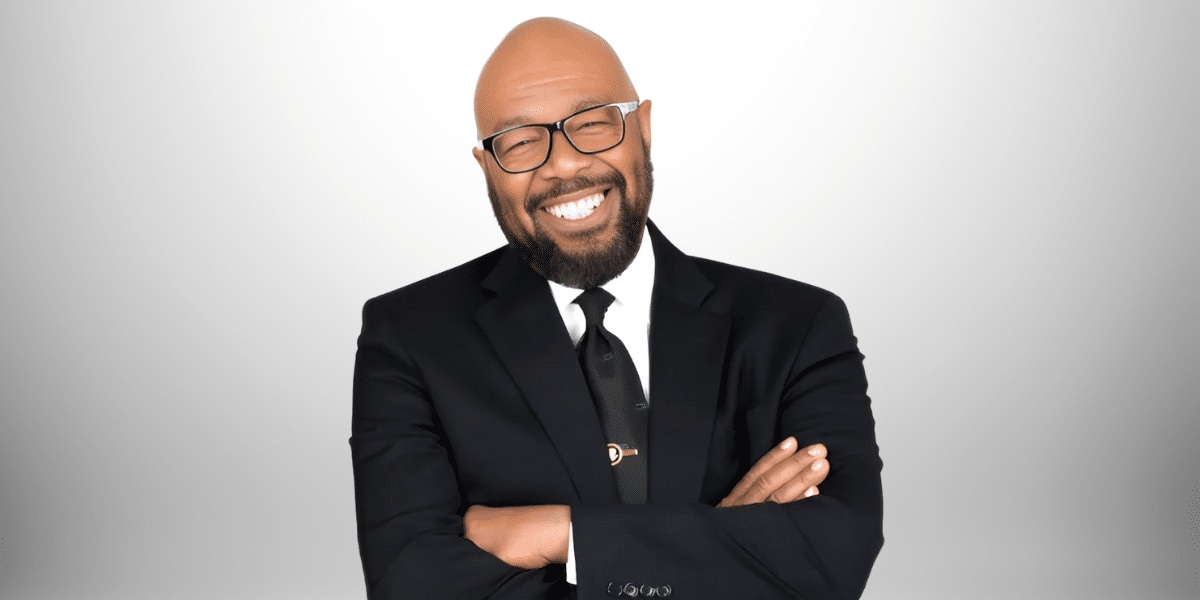By: Mae Cornes
When Che Jordan walks into Ebony House Inc., it is not just a workplace, but a home for healing. The energy shifts as staff and clients greet him not with formality but warmth and respect. As president of Ebony House, based in Phoenix, Jordan focuses on long-term recovery and building lasting trust within a system too often marked by detachment and bureaucracy.
His leadership style is far from the detached corporate approach often seen in healthcare. Jordan’s mission is simple yet revolutionary: to transform how substance abuse and mental health care are delivered to underserved communities. In a healthcare industry driven by profit margins, his approach begs the question: Can compassion and community be the forces for healing?
The answer can be found in Ebony House’s accomplishments. In 2023, Jordan achieved what many healthcare leaders struggle to attain: a client satisfaction rate exceeding 90%. Even more impressive, he maintained this satisfaction rate through 2024. “We’re not just treating addiction here,” he explains, “we’re rebuilding lives.” This philosophy has guided Ebony House’s approach of valuing human connection as much as clinical success.
A New Model for Community-Based Healthcare
The U.S. healthcare system, particularly when addressing addiction and mental health issues, often focuses on short-term treatment solutions. While larger hospitals and clinics can offer advanced treatment options, they usually lack the long-term support for sustained recovery.
Jordan recognized this gap and sought to fill it with Ebony House by offering more than mere detox and therapy. Under his leadership, Ebony House has grown into a multi-faceted support network. The organization provides residential programs along with family and youth services that aim to address the broader context of addiction.
Jordan looks to expand the six-month supported housing program to nine-month for those graduating from Ebony House’s treatment programs, ensuring that clients who cannot fend for themselves receive continuous support once their initial care is complete. “We’re building networks of trust and support beyond treatment,” he explains. “People don’t just stop needing help when they leave here.”
Ebony House also focuses on practical solutions to help clients regain their independence. Bus passes, resume support, and housing assistance are all part of the comprehensive aftercare services that help clients reintegrate into society with dignity. Jordan’s continuous care model is a refreshing alternative in an industry often criticized for its fragmented approach.
Substance Abuse Treatment: The Human Element
Jordan’s work at Ebony House highlights a key truth about substance abuse treatment: it does not simply involve medical intervention but about long-term support and community. As he puts it, “There’s something powerful about having someone guide you through treatment who’s been exactly where you are.”
Such is the reason behind Jordan’s decision to hire alumni of the program—people who have successfully overcome addiction and remained sober for 15, 20, or even 30 years. These staff members offer clients an example of hope and a relatable perspective that a traditional clinical team may be unable to provide.
With opioid use and mental health crises on the rise, Jordan’s work could not come at a better time. According to the National Institute on Drug Abuse, many Americans suffer from substance use disorders, and a significant number relapse due to insufficient aftercare.
Jordan’s model addresses this gap head-on by emphasizing the need for sustained recovery solutions. “We’re not just focusing on detox,” he explains. “Our goal is to ensure our clients stay clean, find employment, and secure stable housing.”
By integrating life skills training, mental health counseling, and family support, Ebony House has become a place of hope for many in Phoenix. Jordan’s method offers an example of how healthcare could operate on a larger scale, especially in underserved communities.
A Relatable Leadership
Jordan’s leadership is rooted in the principle of servant leadership, which focuses on the well-being and development of his staff and clients. His ability to foster a work environment based on appreciation and value has led to high employee retention, which sets Ebony House apart from similar organizations. Many of his team members are former clients who have successfully gone through their recovery journey and now dedicate themselves to helping others do the same.
Beyond his internal leadership, Jordan’s community engagement efforts have also gained attention. In 2024, he received the BNS News Influential Leader Award, appeared in 2024 Top 100 Innovators and Entrepreneurs magazine and was featured on “The Balancing Act with Montel Williams.” He considers these accolades to be secondary to his actual impact. “Awards are great, but the true reward is seeing lives change,” he says.
He also received a Global Recognition Award for outstanding leadership in the healthcare sector, highlighting his approach to client care and helped Ebony House become a respected organization.
His vision extends beyond Phoenix. Jordan is building partnerships with local and national organizations to expand Ebony House’s services into other regions, aiming to replicate its success nationwide. “There are so many communities that could benefit from what we’ve built here,” he shares. “We’re just getting started.”
Jordan is scaling Ebony House’s impact while staying true to its core values. His vision is to create a national network of community-based substance abuse centers, each rooted in compassionate care and long-term support. In this regard, Jordan is proving that human connection and community engagement are the real drivers of lasting change. “There’s still so much more to do, but we’re ready for it,” he confidently says.
Published By: Aize Perez











